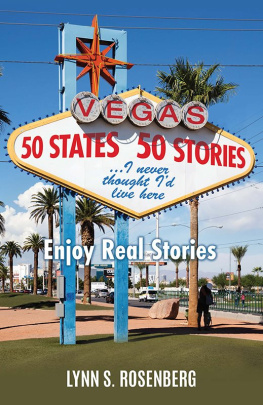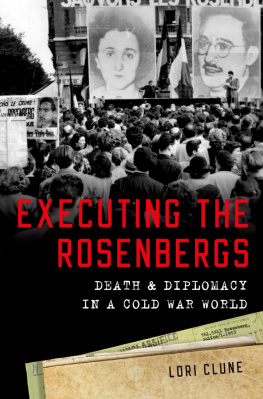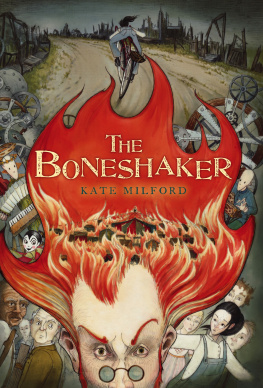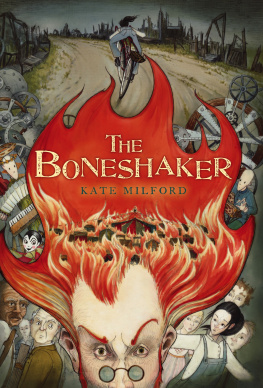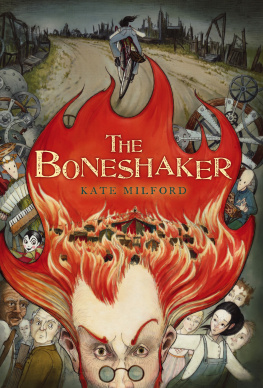Thank you for downloading this Simon & Schuster eBook.
Join our mailing list and get updates on new releases, deals, bonus content and other great books from Simon & Schuster.
C LICK H ERE T O S IGN U P
or visit us online to sign up at
eBookNews.SimonandSchuster.com
We hope you enjoyed reading this Simon & Schuster eBook.
Join our mailing list and get updates on new releases, deals, bonus content and other great books from Simon & Schuster.
C LICK H ERE T O S IGN U P
or visit us online to sign up at
eBookNews.SimonandSchuster.com
PRAISE FOR THE BROTHER
A fresh look at the atomic-bomb spies, Julius and Ethel Rosenberg, from the perspective of the man who stole the secrets and then gave up the Rosenbergs to the F.B.I.David Greenglass. What makes the story especially poignant is that those whom Mr. Greenglass strapped into the electric chair were members of his own familyhis sister and brother-in-law.
THE NEW YORK TIMES
A gripping account of the most famous espionage case in U.S. history... [an] excellent book, written with flair and alive with the agony of age.
THE WALL STREET JOURNAL
Could not have appeared at a timelier moment, if only to remind Americans that, in an excess of zeal, government agents and prosecutors can create a judicial process in which punishment exceeds the crime.... The Brother provides a fascinating narrative of growing up in East Side immigrant radical communities.
LOS ANGELES TIMES
[Robertss] greatest investigatory contribution lies in finding Greenglass... and persuading him to talk.
CHICAGO TRIBUNE
Without equal in the vast literature about the Rosenbergs. Its uniqueness lies not in the fact that The Brother is the most current and comprehensive book about the Rosenbergs, or because Mr. Roberts successfully traced and dogged David Greenglass after his prison release and interviewed him at length. It is because his book stands by itself as an extraordinary literary achievement. He has given us a magnificently readable, intellectually rich work.
NEW YORK LAW JOURNAL
[A] terrific read... This story... will make your hair stand on end. Fourteen years in the making, this book reads like a spy novel, but every word is true.
LIZ SMITH
Offers fresh perspectives on the trial of the century... Roberts tenaciously tracked [David Greenglass] down. His remarkably engrossing Brother proves it was worth the effort.
NEW YORK POST
As told by... Sam Roberts, [the Rosenberg spy case] seems like a timeless Shakespearean tragedy.... Readers will receive no uplift from The Brother. What they will receive is a smart education about one of the most wrenching cases in American history.
ST. LOUIS POST-DISPATCH
A fascinating book... a sordid tale, as much about a familys conflicted loyalties as it is about espionage.
THE ATLANTA JOURNAL-CONSTITUTION
Contents
For Marie
Did you ever read Five A.M. ? By that French writer, very famous French writer. In the fifties. He would wake at five in the morning, and thats the whole book. Thinking is the thing that keeps him from going back to sleep. All at five oclock in the morning.
I woke up. It was like clockwork. When I went to sleep I was like exhausted. I couldnt think at all. At five oclock in the morning it began to go through my head. And through the head is like a thread which holds together all the various thoughts and what is the outcome of the whole thing. And it goes on and on.
So you have to tell the truth. You cant do anything else. Theres no other way to go. You make the best deal you know how. And it didnt even occur to me, even in that, that anybody was dying.
DAVID GREENGLASS
Thirty-three years after he was arrested for conspiring to steal atomic secrets, I began my search for David Greenglass. He had changed his name and vanished. Once I found him, it took me thirteen years to finally persuade him to speak fully for the first time about why he enlisted as a Russian spy and later delivered his sister, Ethel Rosenberg, and her husband, Julius, to their deaths in Sing Sings electric chair. Our more than fifty hours of uncensored conversations, fleshed out with other revelations about the investigation, trial, and execution of the Rosenbergs, form the backbone of The Brother .
David could not veto anything I wrote. He read it for the first time in this book. So did his wife and children, whom he never told about our collaboration.
Chapter 1
The Brother of Death
I didnt cry. I didnt really kill them.
D avid Greenglass never cried for his sister. He didnt cry when she was arrested, when she was convicted, or even when she was sentenced to the electric chair, so perhaps it wasnt out of character that he didnt cry on that hellish Friday in June 1953 when she died.
Of all the places David might have imagined himself at the age of thirty-one, having grown up on the Lower East Side of Manhattan and aspired to be an engineer, a maximum-security federal prison in the middle of Pennsylvania was just about the most improbable. Pointing fingers might have seemed tasteless on that of all days, but had David been groping for a scapegoat, his brother-in-law fit the bill.
I was there because of Julius Rosenberg, he later said.
Well before that day, David had armed himself with an arsenal of alibis. That was his nature. When cornered, he instinctively cast about for a place to lay the blame and, after a perfunctory search, invariably found it elsewhere: a temptress, like his older sister, who seduced him with candy-coated ideology that clouded his ordinarily sober judgment; someone elses innocuous misstep that had tripped him up and sent him careering down a slippery slope; or a conspiracy by powerful people prejudiced against New Yorkers, communists, and Jews. A professional machinist fascinated by electricity, David insulated himself against the idea that the immutable laws governing causes and effects in physics also apply to the more ephemeral world of truth and consequences.
Which was why he so firmly believed that day that the events of the preceding ten yearsevents and their consequences that were to culminate that night in the first peacetime execution of American civilians for espionagewerent his fault. In a funny way, David was right. As his mother reminded him, if he hadnt been color-blind, he would have been a Seabee, not an army draftee. Which meant he wouldnt have been granted that transfer, itself inexplicable, the day before his battalion was to be shipped overseas, wouldnt have been assigned to Los Alamos, and wouldnt have been recruited as an atomic spy.
And what had it all been for? The approval of the brother-in-law he now reviled? Blind loyalty to the Soviet Union, whose postwar belligerence had transformed even the Germans into victims and was sending Davids own son diving under his elementary-school desk in futile air-raid drills? Still, no one could have imagined that Davids role in the events of the previous ten years would generate a familial tragedy of epic dimensions, upend global politics, and shatter a generation. And for all his explanations and excuses, virtually nobodyDavid includedever imagined that the death penalty would be imposed or carried out.
It was said that Sacco and Vanzetti united the American left, and the Rosenbergs irreparably divided it. There was little division over David, though. Xenophobic newspaper editorialists hailed him as a brilliant physicist, a courageous catalyst whose wrenching confession exposed a villainous spy ring that was plundering Americas scientific secrets. His reputation for heroism, however, was short-lived. Closer examination soon revealed a pliant self-described patriot, neither brilliant nor courageous, who, floundering in quicksand of his own making, grasped at legal straws to save himself. After blurting out his incriminating confession within hours of his apprehension, he immediately threatened to repudiate it. He vowed to commit suicide if his wife, whom he alone had implicated, was prosecuted, too. His confession hadnt been cathartic, an FBI profile later concluded, because the crime had not weighed on his conscience. Nor, apparently, did the death penalty later imposed on his sister, Ethel, and her husband, Julius. He finally joined in Ethels appeal for presidential clemency only after being prodded, and even then he revealed as much about himself as about his emotional bond with his sister and brother-in-law. If these two die, he wrote, I shall live the rest of my life with a very dark shadow over my conscience.
Next page

